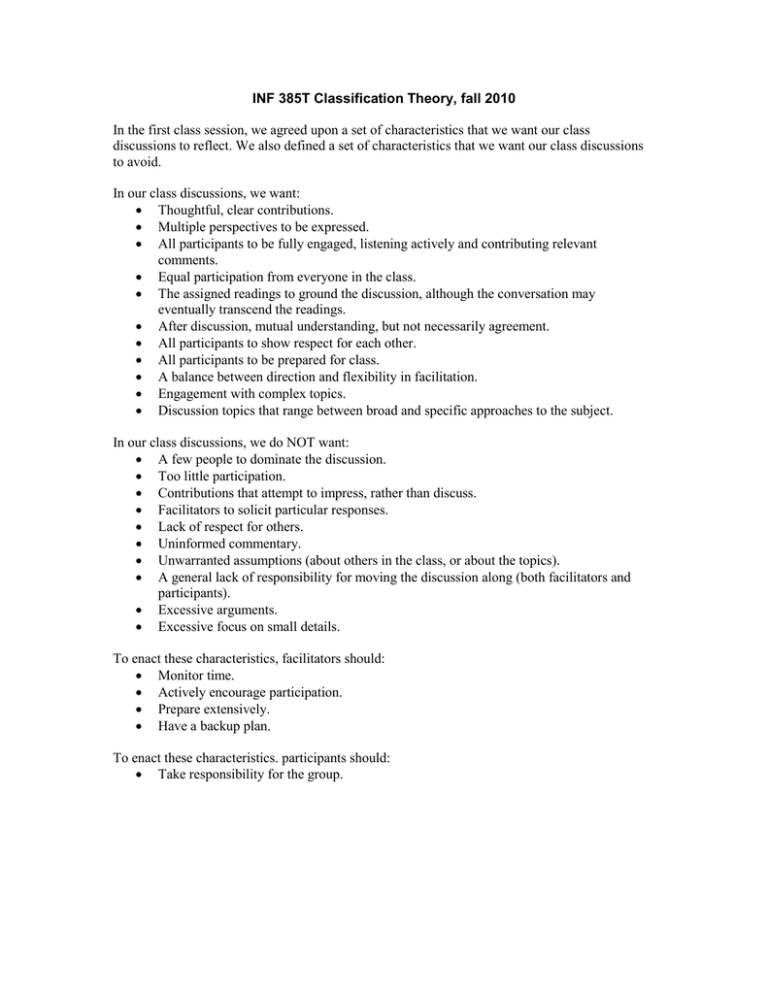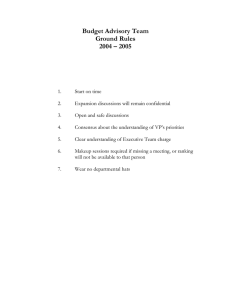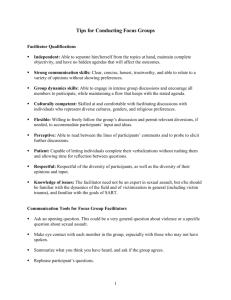INF 385T Classification Theory, fall 2010
advertisement

INF 385T Classification Theory, fall 2010 In the first class session, we agreed upon a set of characteristics that we want our class discussions to reflect. We also defined a set of characteristics that we want our class discussions to avoid. In our class discussions, we want: Thoughtful, clear contributions. Multiple perspectives to be expressed. All participants to be fully engaged, listening actively and contributing relevant comments. Equal participation from everyone in the class. The assigned readings to ground the discussion, although the conversation may eventually transcend the readings. After discussion, mutual understanding, but not necessarily agreement. All participants to show respect for each other. All participants to be prepared for class. A balance between direction and flexibility in facilitation. Engagement with complex topics. Discussion topics that range between broad and specific approaches to the subject. In our class discussions, we do NOT want: A few people to dominate the discussion. Too little participation. Contributions that attempt to impress, rather than discuss. Facilitators to solicit particular responses. Lack of respect for others. Uninformed commentary. Unwarranted assumptions (about others in the class, or about the topics). A general lack of responsibility for moving the discussion along (both facilitators and participants). Excessive arguments. Excessive focus on small details. To enact these characteristics, facilitators should: Monitor time. Actively encourage participation. Prepare extensively. Have a backup plan. To enact these characteristics. participants should: Take responsibility for the group.




